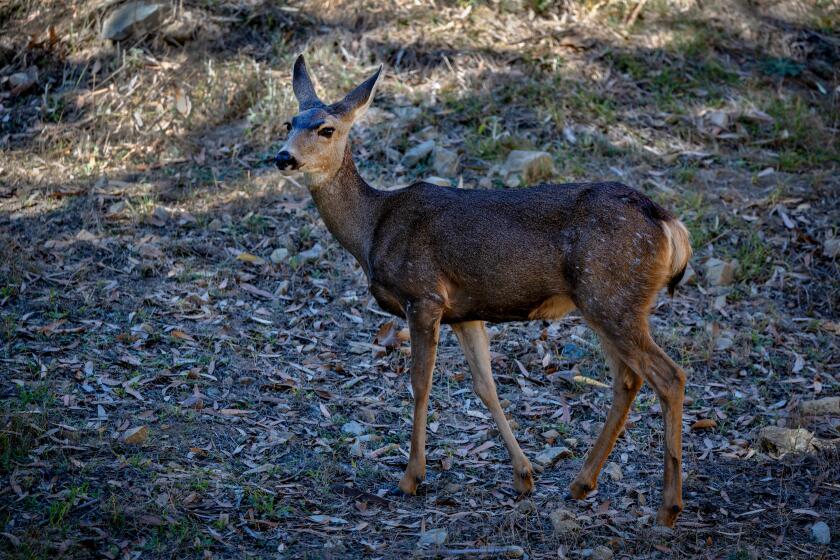Defecting Group Attacks Gnatcatcher Program : Conservation: Natural Resources Defense Council calls Wilson aide’s voluntary approach a failure and urges Fish and Game to declare the bird endangered.
Saying the Wilson Administration’s conservation program has failed to live up to promises to protect the California gnatcatcher, a major environmental group has quit the effort and is urging the Administration to bring the issue back to the state Fish and Game Commission.
The Natural Resources Defense Council resigned from a 12-member panel trying to agree on a voluntary strategy to safeguard the gnatcatcher, a small Southern California songbird.
The program was begun by state Undersecretary of Resources Michael Mantell, who urged Fish and Game in August to not to list the bird as an endangered species so his state Resources Agency can start a voluntary effort to help the bird.
Fish and Game agreed, and Mantell promised that if his program failed, he would reappear before the commission and seek listing of the bird.
“We think it’s time to go back to the commission and tell them that it has not met the expectations,” said Joel Reynolds, a senior attorney for natural resources council, based in Los Angeles. “Michael Mantell assured the Fish and Game Commission that the listing was unnecessary because the (program) would provide adequate protection. Unfortunately, that has not been the case.”
Reynolds said the environmental council dropped off the conservation panel because after nearly five months, no protections have been set in place or proposed for the bird. The council led efforts to persuade state and federal officials to list the gnatcatcher.
The council includes two other environmental groups--the Nature Conservancy and the Endangered Habitats League--as well as three members of the building industry. The habitats group has separately also expressed dissatisfaction with the results of Mantell’s approach.
The gnatcatcher--a 5-inch, blue-gray songbird--lives mostly in California sagebrush, a fast-depleting form of vegetation found mainly in Orange, San Diego and western Riverside counties. Local developers say listing the bird is unwarranted, and they fear that it would delay or halt development of expensive coastal land.
Mantell’s plan, the Natural Communities Conservation Planning Program, is considered by all sides to be a novel approach to endangered species.
But many environmentalists say that although the idea is good, it is strictly voluntary and cannot replace the protections that species are granted when listed as endangered.
“Interim controls would protect the species while the program is developed,” Reynolds said, “but there appear to be none on the horizon. We may never see them. We feel the gnatcatcher is being endangered in the process.”
Andy McLeod, a spokesman for the Resources Agency, said Friday that Mantell has given Fish and Game written monthly updates but has no immediate plans to appear before that commission.
He added that his agency will announce a series of new interim controls to protect the bird “in the coming weeks.”
“This is a highly ambitious, highly innovative program designed to break the deadlock over habitat conservation and competing economic development,” McLeod said.
“It is an extremely complex and laborious undertaking, and every effort is being made to proceed based on sound, scientific data. The approach can’t be half-baked, so it takes a lot of time working with many interests.”
McLeod added that the Natural Resources Defense Council had not been very committed to the program before it dropped out and that its members rarely attended the meetings.
“If they are not part of the solution, they are part of the problem, and they apparently are not willing to be part of this solution,” he said.
Reynolds, however, said his council has fully supported the program and will still assist it, even though it has dropped off the steering committee.
“We still would like to see it work. . . . While we were willing to give it some time and assist it, we’ve reached the point where we see no real prospects for interim protection,” he said.
More to Read
Start your day right
Sign up for Essential California for news, features and recommendations from the L.A. Times and beyond in your inbox six days a week.
You may occasionally receive promotional content from the Los Angeles Times.






